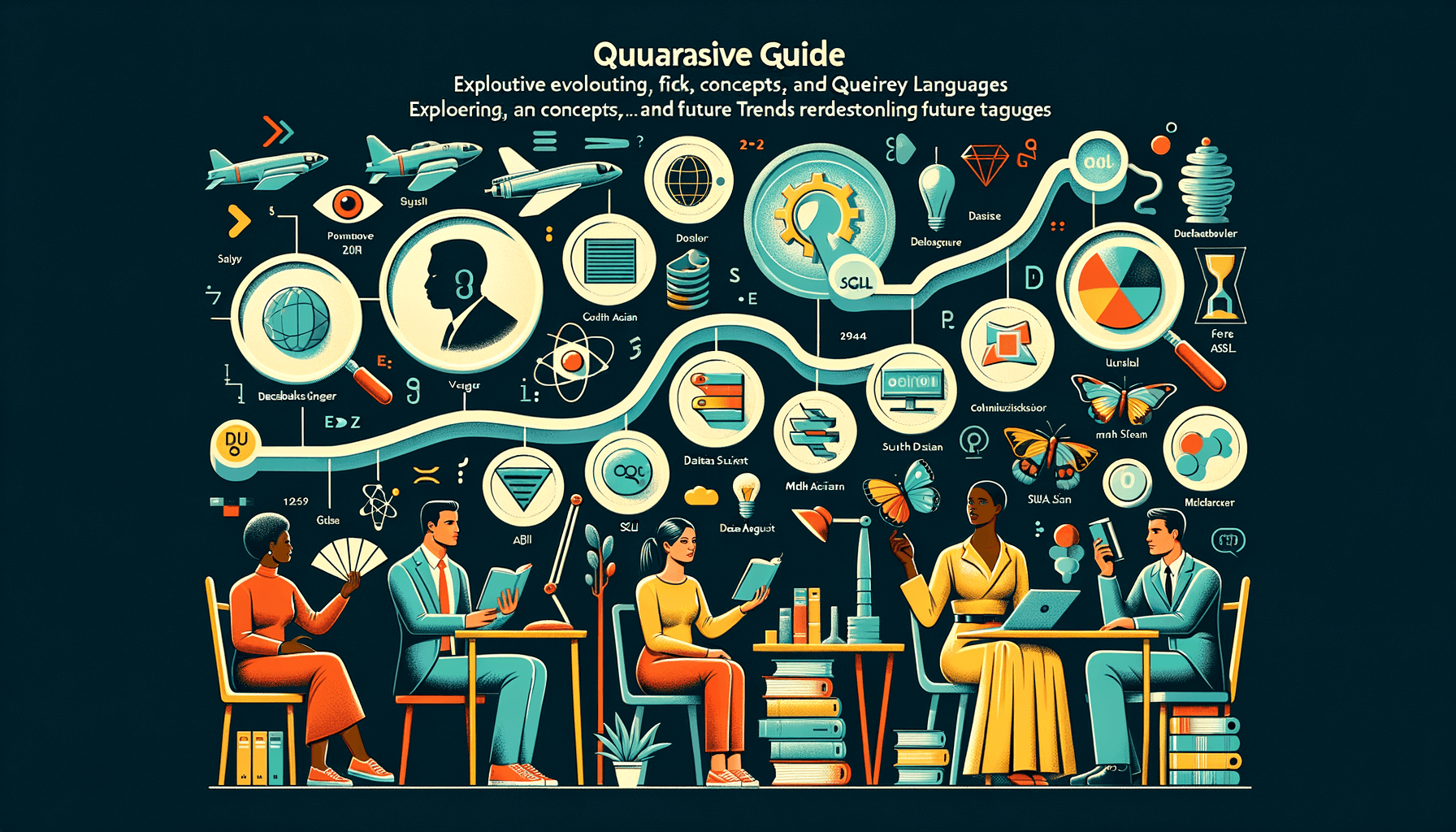A big variety of articles and resources

Is SQL Hard to Learn? Breaking Down the Myths
 Sia Author and Instructor
Learn SQL
Sia Author and Instructor
Learn SQL
10 minute read
Is SQL really hard to learn, or is that just a myth? In this article, we'll break down what SQL is, compare it to other programming languages, and tackle some common misconceptions. We'll also share some tips on how to learn SQL effectively and discuss the challenges you might face. Finally, we'll look at the role of SQL in modern data science and real-world applications of SQL skills.
Key Takeaways
- SQL is a powerful language used for managing and manipulating databases.
- Unlike procedural languages, SQL is declarative, meaning you specify what you want, not how to do it.
- Many believe SQL is hard to learn, but it's actually quite accessible with the right resources and practice.
- SQL is widely used in various industries, from business intelligence to web development.
- Learning SQL opens up many career opportunities in data science, analytics, and more.
Understanding SQL: A Foundational Overview
The Origins and Evolution of SQL
SQL, or Structured Query Language, has a rich history that dates back to the 1970s. It was developed by IBM to manage and manipulate relational databases. Over the years, SQL has evolved significantly, becoming a standard in the database industry. Its adaptability and robustness have ensured its continued relevance in modern data management.
Core Concepts and Syntax
At its core, SQL is designed to interact with databases. The language is built around a few key commands like SELECT, INSERT, UPDATE, and DELETE. These commands allow users to retrieve and modify data efficiently. The syntax is straightforward, making it accessible even for beginners. Understanding these basic commands is crucial for anyone looking to jumpstart their SQL journey.
Common Uses of SQL in Industry
SQL is widely used across various industries for different purposes. In business, it helps in managing customer data and sales records. In healthcare, SQL databases store patient information and medical records. The tech industry uses SQL for backend development and data analysis. Its versatility makes it an invaluable tool in today's data-driven world.
Mastering SQL opens up numerous opportunities in various fields, from business intelligence to web development. It's a skill that offers a solid foundation for future learning and career growth.
Comparing SQL to Other Programming Languages
SQL vs. Procedural Languages
When we compare SQL to procedural languages like Python or Java, we notice a big difference. Procedural languages follow a step-by-step approach to solve problems. In contrast, SQL is designed to manage and query databases. SQL focuses on what data to retrieve, not how to retrieve it. This makes SQL unique and powerful for database tasks.
Declarative Nature of SQL
SQL is a declarative language, which means we tell the database what we want, not how to get it. This is different from procedural languages where we write detailed instructions. The declarative nature of SQL simplifies complex tasks, making it easier for beginners to learn and use. For example, a data analyst can quickly write a query to find specific information without needing to understand the underlying processes.
Learning Curve: SQL vs. Other Languages
The learning curve for SQL is often considered easier compared to other programming languages. While languages like C++ or Java require understanding of complex concepts, SQL's syntax is more straightforward. Beginners can start with simple queries and gradually move to more complex ones. This step-by-step learning process is often supported by resources like an introduction to SQL course, which offers hands-on SQL training with industry insights. This makes SQL accessible even for those new to programming.
Common Misconceptions About Learning SQL
SQL is Only for Database Experts
Many people think that SQL is only for database experts. This is not true. SQL is a versatile tool used in many fields. From business to web development, knowing SQL can be very helpful. You don't need to be a database expert to start learning SQL. Websites like sqlskillz.com vs codecademy.com offer courses that are perfect for beginners. You can learn at your own pace and no credit card is required to sign up.
SQL Requires Advanced Math Skills
Another myth is that you need advanced math skills to learn SQL. While some math is involved, it's mostly basic arithmetic. You don't need to be a math whiz to write SQL queries. The focus is more on understanding data and how to manipulate it.
SQL is Outdated
Some people think SQL is outdated. This is far from the truth. SQL is still widely used in many industries today. It's a key skill for data analysis, business intelligence, and even machine learning. SQL continues to be relevant and valuable in the modern tech world.
Learning SQL opens up many opportunities. It's a skill that can benefit you in various careers, from data science to web development. Don't let these misconceptions hold you back from mastering SQL.
Effective Strategies for Learning SQL
Utilizing Online Resources and Tutorials
One of the best ways to start learning SQL is by using online resources and tutorials. There are many platforms available, such as SQLSkillz.com and Udemy.com, that offer courses for beginners. These platforms often provide a comparison between SQLSkillz.com and Udemy.com for learning SQL basics. You can start learning at your own pace without needing a credit card to sign up.
Hands-On Practice and Real-World Projects
To truly understand SQL, you need to practice by working on real-world projects. This hands-on approach helps you apply what you've learned in a practical setting. Try creating your own database or working on sample datasets to get a feel for how SQL works in real scenarios.
Joining SQL Communities and Forums
Another effective strategy is to join SQL communities and forums. These platforms allow you to connect with other learners and experts, ask questions, and share your experiences. Being part of a community can provide you with support and motivation as you learn.
Learning SQL can be challenging, but with the right resources and support, anyone can master it. Start with online tutorials, practice regularly, and engage with the community to enhance your learning experience.
Challenges You Might Face While Learning SQL
Understanding Complex Queries
When we first start learning SQL, one of the biggest hurdles is understanding complex queries. These queries often involve multiple tables, intricate joins, and nested subqueries. Mastering these can be daunting, but with practice, we can get better at it. Breaking down the queries into smaller parts can help us understand them better.
Dealing with Large Datasets
Working with large datasets can be another challenge. As the size of the data grows, our queries might take longer to run, and we might face performance issues. It's important to learn how to optimize our queries and use indexing effectively. This way, we can handle large datasets more efficiently.
Optimizing SQL Performance
Optimizing SQL performance is crucial for making sure our queries run smoothly and quickly. We need to understand how to use indexes, avoid unnecessary columns in our SELECT statements, and write efficient joins. By focusing on these areas, we can improve the performance of our SQL queries.
While learning SQL, we might face several challenges, but with persistence and the right strategies, we can overcome them and become proficient in SQL.
The Role of SQL in Modern Data Science and Analytics
SQL in Data Extraction and Transformation
In the world of data science, SQL is a key tool for extracting and transforming data. We use SQL to pull data from various sources, clean it, and prepare it for analysis. This process is crucial because it ensures that the data we work with is accurate and reliable. Without SQL, managing large datasets would be a daunting task.
SQL for Data Analysis and Reporting
SQL is not just for data extraction; it's also vital for data analysis and reporting. We can write SQL queries to analyze trends, generate reports, and make data-driven decisions. This ability to quickly retrieve and analyze data makes SQL an indispensable skill in data science.
SQL in Machine Learning Pipelines
In machine learning, SQL plays a significant role in building and maintaining data pipelines. We use SQL to gather and preprocess data before feeding it into machine learning models. This step is essential for ensuring that our models are trained on high-quality data, leading to better predictions and insights.
Mastering SQL can significantly improve our ability to handle data, making it a valuable skill for anyone interested in data science and analytics.
Real-World Applications of SQL Skills
SQL in Business Intelligence
In the realm of business intelligence, SQL is a powerful tool. It helps us pull data from various sources, making it easier to analyze and understand. With SQL, we can create detailed reports and dashboards that help businesses make informed decisions. This ability to turn raw data into actionable insights is invaluable.
SQL in Web Development
Web development often relies on SQL for managing databases. Whether it's a small blog or a large e-commerce site, SQL helps us store, retrieve, and manipulate data efficiently. We can use SQL to handle user information, product details, and transaction records, ensuring everything runs smoothly behind the scenes.
SQL in Cloud Computing
In the age of cloud computing, SQL remains relevant. Many cloud services offer SQL-based databases, allowing us to manage data in a scalable and flexible way. Using SQL in the cloud means we can handle large datasets and complex queries without worrying about hardware limitations. This makes it easier to build and maintain robust applications.
SQL skills are incredibly useful in many real-world situations. From managing databases to analyzing data, knowing SQL can open up many job opportunities. If you want to learn more about how SQL can benefit your career, check out our courses. We offer lessons that are easy to follow and perfect for beginners. Don't wait, start learning today!
Conclusion
In summary, learning SQL is not as hard as many people think. While it may seem scary at first, with practice and the right resources, anyone can get the hang of it. SQL is a powerful tool that can help you manage and understand data better. By breaking down the myths, we see that SQL is accessible to beginners and can be a valuable skill in many careers. So, don't let the myths stop you. Give SQL a try and see how it can help you in your studies or job.
Frequently Asked Questions
Is SQL hard to learn for beginners?
No, SQL is not hard to learn for beginners. It has a simple syntax and many resources are available to help you get started.
Do I need to be good at math to learn SQL?
No, you don't need to be good at math to learn SQL. Basic math skills are enough to understand and write SQL queries.
Is SQL only used by database experts?
No, SQL is used by many people, not just database experts. It's useful for anyone who needs to work with data, including analysts, developers, and scientists.
Is SQL still relevant today?
Yes, SQL is still very relevant today. It's widely used in many industries for data management and analysis.
Can I learn SQL on my own?
Yes, you can learn SQL on your own. There are many online resources, tutorials, and communities that can help you.
What are the main challenges when learning SQL?
Some main challenges include understanding complex queries, working with large datasets, and optimizing performance. But with practice, these can be overcome.







